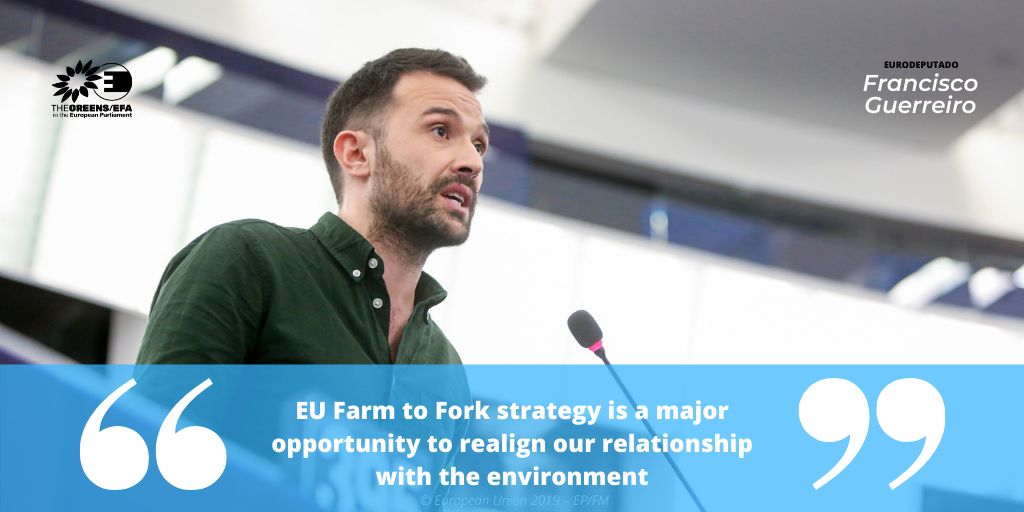
The Parliament Magazine: 'EU Farm to Fork strategy is a major opportunity to realign our relationship with the environment'
EU Farm to Fork strategy is a major opportunity to realign our relationship with the environment
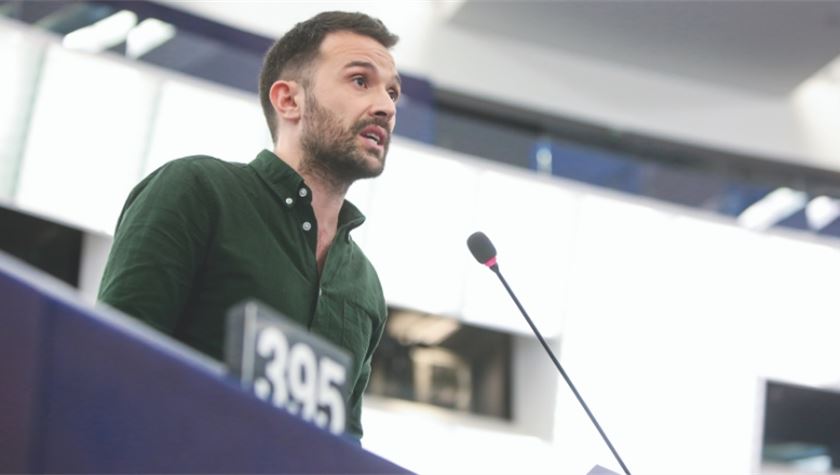
In theory, the Farm to Fork (F2F) Strategy has the potential to revolutionise how we produce and consume our food in the European Union and ensure its affordability, sustainability and security, just as Commission President Ursula von der Leyen promised.
Nevertheless, in practice, the concrete, bold and much-needed measures to tackle the biggest problem in agriculture seem to be missing from the F2F strategy. I am referring to the elephant in the room, the one that the institutions consistently fail to target when proposing measures to tackle the current environmental catastrophe, namely the intensive livestock sector.
The F2F Strategy actually recognises that 70 percent of emissions from agriculture come from the animal farming sector, and that 68 percent of the total agricultural land is used for animal production.
“In practice, the concrete, bold and much-needed measures to tackle the biggest problem in agriculture seem to be missing from the F2F strategy”
It also recognises that “moving to a more plant-based diet with less red and processed meats and with more fruits and vegetables will reduce not only risks of life threatening diseases, but also the environmental impact of the food system”; and that “while average intakes of (...) red meat (...) continue to exceed recommendations, consumption of whole-grain cereals, fruit and vegetables, legumes and nuts is insufficient”.
From the strategy, we can take it that the Commission is aware that we need to cut meat consumption and replace it with plant proteins. However, where then are the measures that would allow us to make this paradigm shift at the speed the environment requires? And why was dairy excluded from the discussion? The Commission should have proposed tax incentives for the F2F to be directed towards specific and sustainable plant-based products, in order to make them more affordable.
At the same time, the price of animal products should reflect their environmental footprint; such as associated greenhouse gas emissions and land use. This latter measure would, of course, be highly controversial; however, if meat retail prices continue to be low and fail to reflect the true cost (due to subsidies and externalisation of ecologic impacts), citizens will continue to have incentives to buy it. This is not what the F2F aims to achieve.
Furthermore, farmers should be eligible for incentives to switch to producing plant-proteins for human consumption. Also, measures for promoting protein crops for human consumption should have been included in the legislative proposal for a framework for a sustainable food system (to be published by the end of 2023), which is listed as an Action in the strategy.
Simplifying our food chain would enable us to reduce emissions and improve food affordability and security, but this is not what we practice. Instead, we grow or import crops to feed animals and then eat the animals when we should be eating the crops ourselves.
Fisheries are also a critical sector for the environment: the strategy fails to set comprehensive measures and goals for a transition to a low-impact fishing industry. This involves ending overfishing, ensuring that fisheries are fully monitored and controlled, banning destructive practices, nonselective fishing gear and eliminating the bycatch of sensitive species. When stating that fish consumption in the EU is ‘insufficient’, the strategy also fails to protect our oceans by making a clear call for us to eat more.
On aquaculture, the Commission has also failed to set wide-ranging measures and goals for a full transition to environmentally responsible and low impact aquaculture. The bottom line is that the F2F strategy has set some ambitious and welcome targets, such as pesticide reduction by 50 percent by 2030 and a 50 percent reduction in the sales of antimicrobials for farmed animals and in aquaculture by 2030.
“By continuing to shield the strongly lobbied meat, dairy, fishing and aquaculture industries, the Commission has avoided tackling the problem at its roots”
However, critical food sectors with high environmental impacts have not been effectively addressed. Food affordability and security go hand-in-hand with sustainability. By continuing to shield the strongly lobbied meat, dairy, fishing and aquaculture industries, the Commission has avoided tackling the problem at its roots.
In addition to these sectors, there is a fundamental component that must also be mentioned here - long supply chains. The COVID-19 pandemic has demonstrated how our dependency on these chains has made our food system fragile, and the Commission has aimed - in the F2F - to change this: “to create shorter supply chains [it] will support reducing dependence on long-haul transportation”. Yet how will this manifest itself?
Many of the actions proposed in the document are simply too vague for a proper analysis, and this is one of them. Even with the vagueness attached to many of the proposed actions, the Commission’s F2F proposal still needs to be scrutinised by the European Parliament.
For the sake of future generations, I hope that the MEPs are suitably critical towards it. They need to ensure that it favours the environment and that they do not water down, in any way, the Commission’s progressive ambitions that offer the potential to bring us one step closer to carbon neutrality.
Read the most recent articles written by Francisco Guerreiro - Time to revolutionise the way we produce and consume food
Lê o artigo aqui
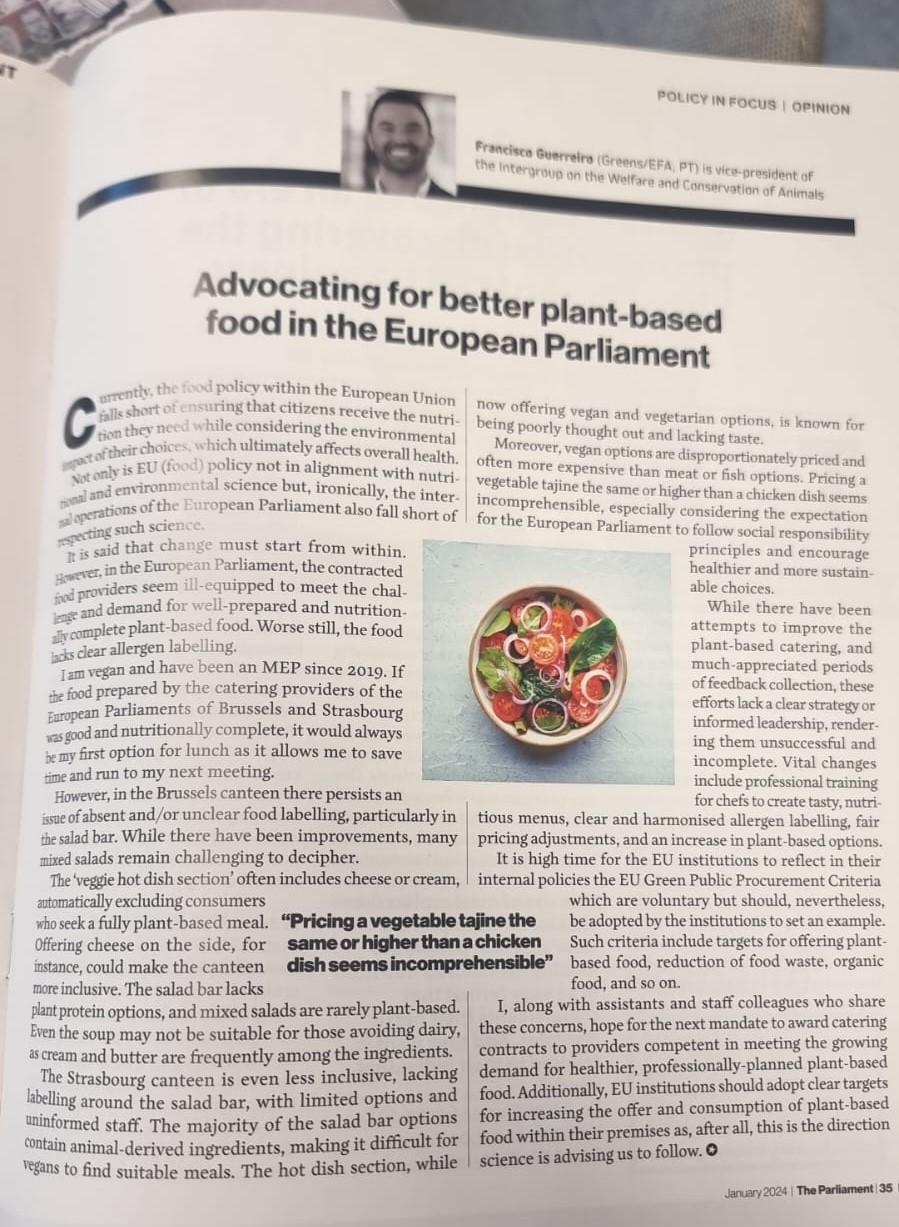

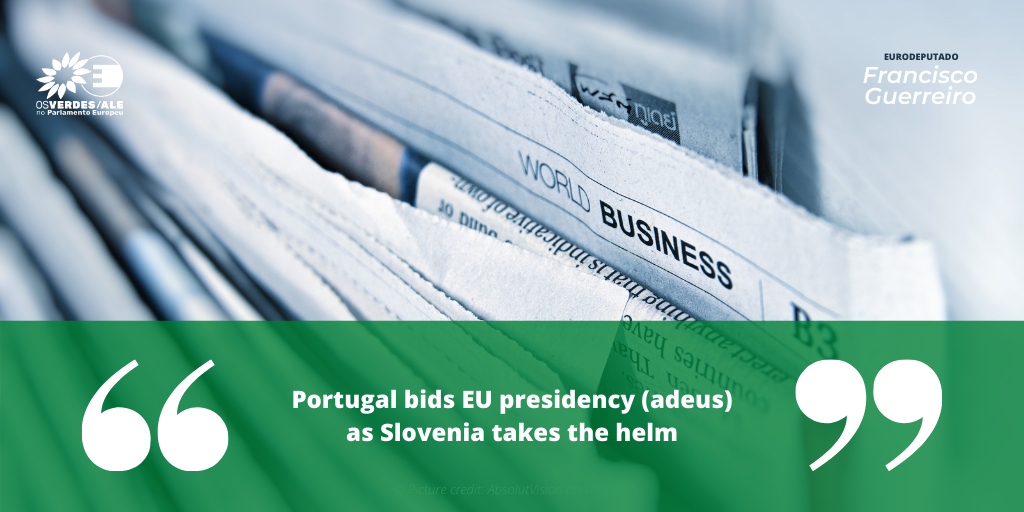
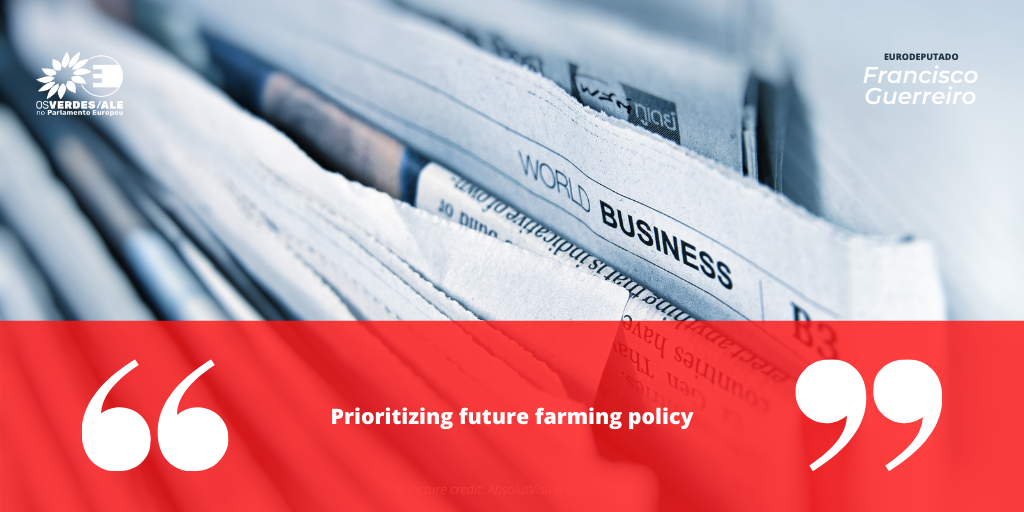
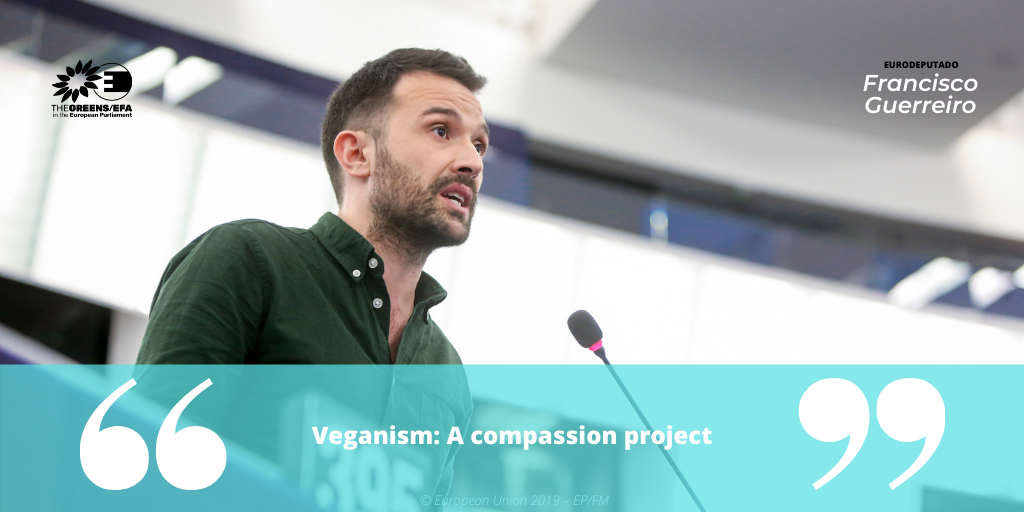

The Parliament Magazine: 'From policy to plate: advocating for better plant-based food in the European Parliament'
Terça-feira, 23 de Janeiro de 2024
LER MAIS